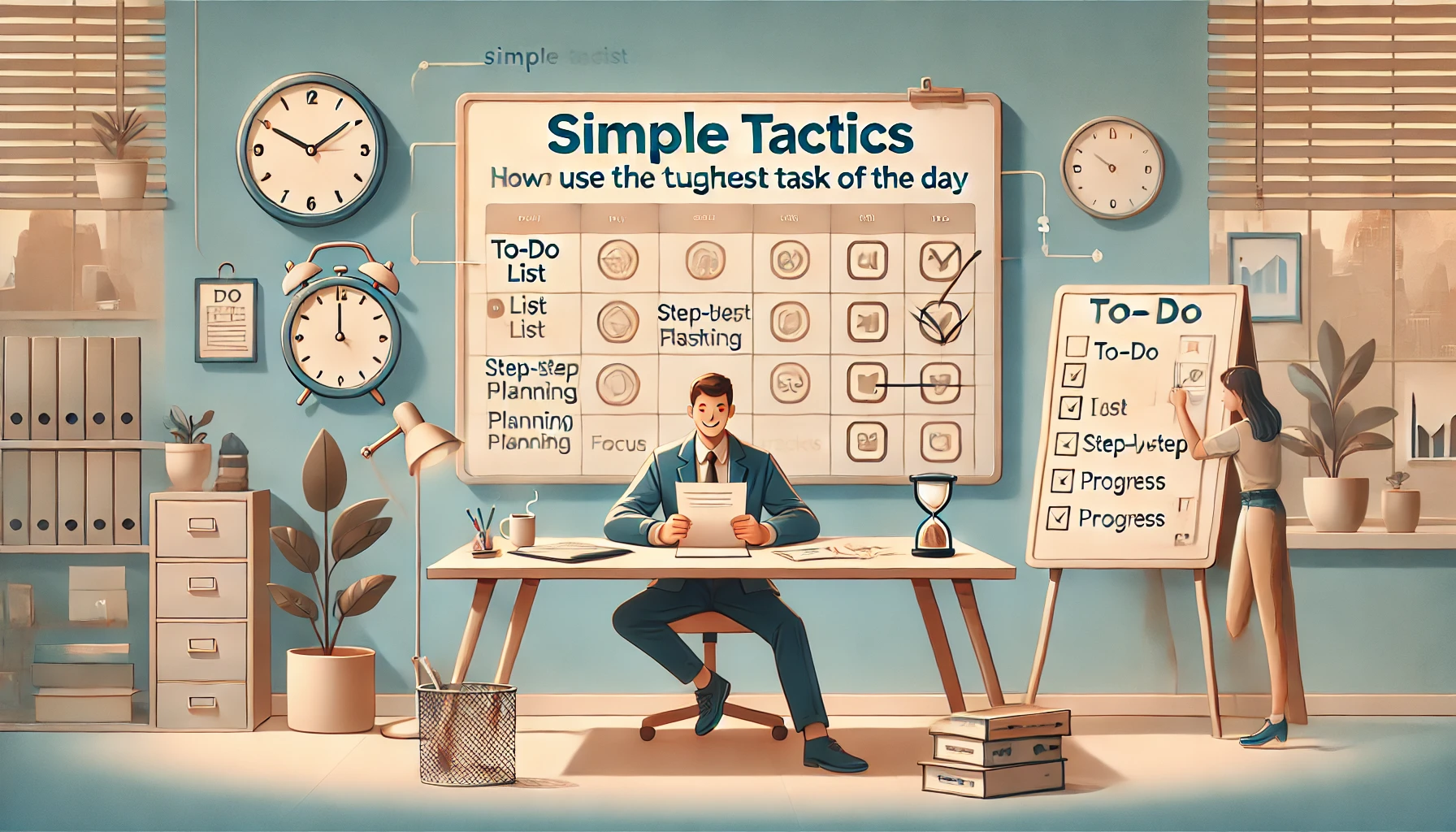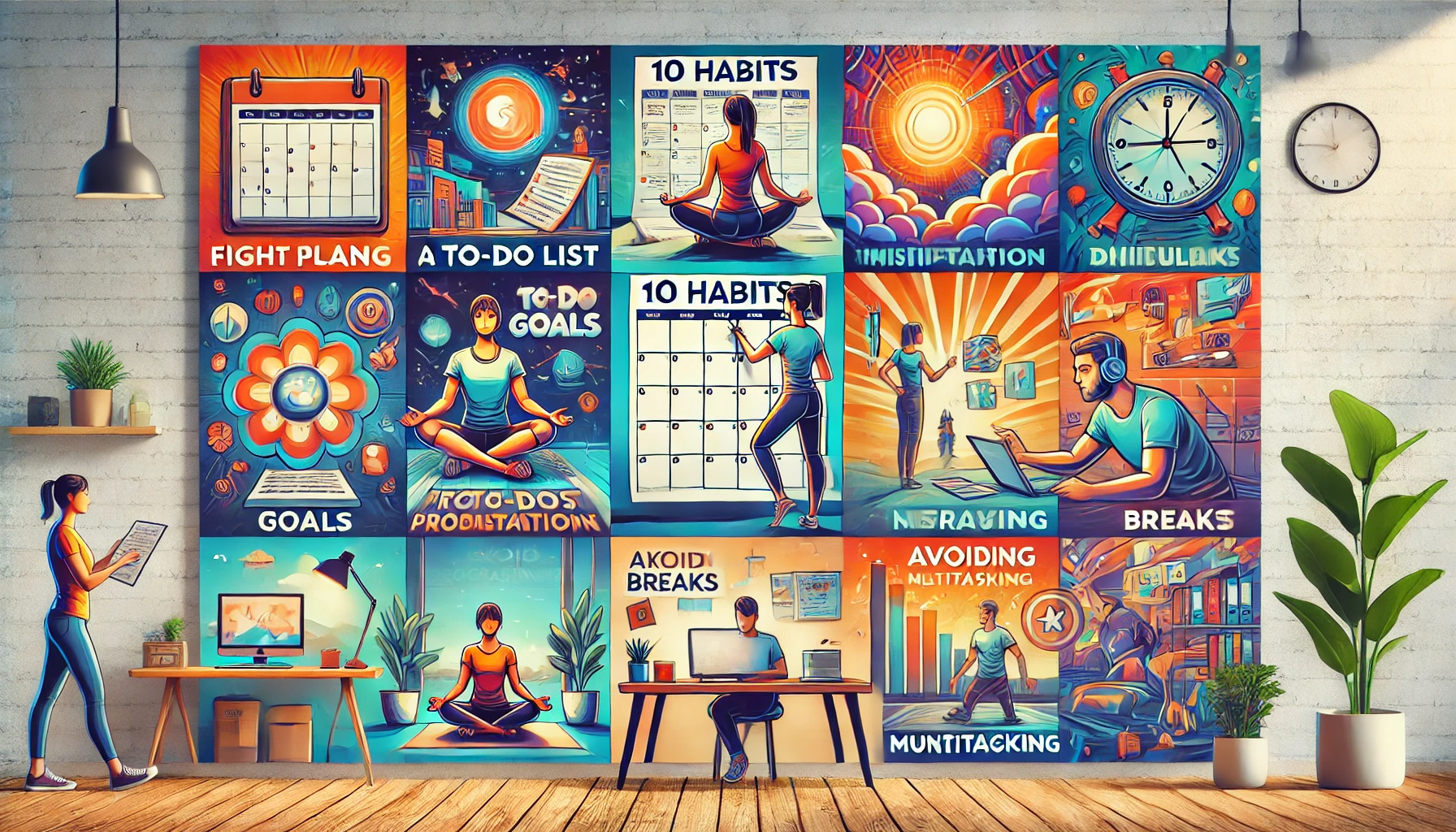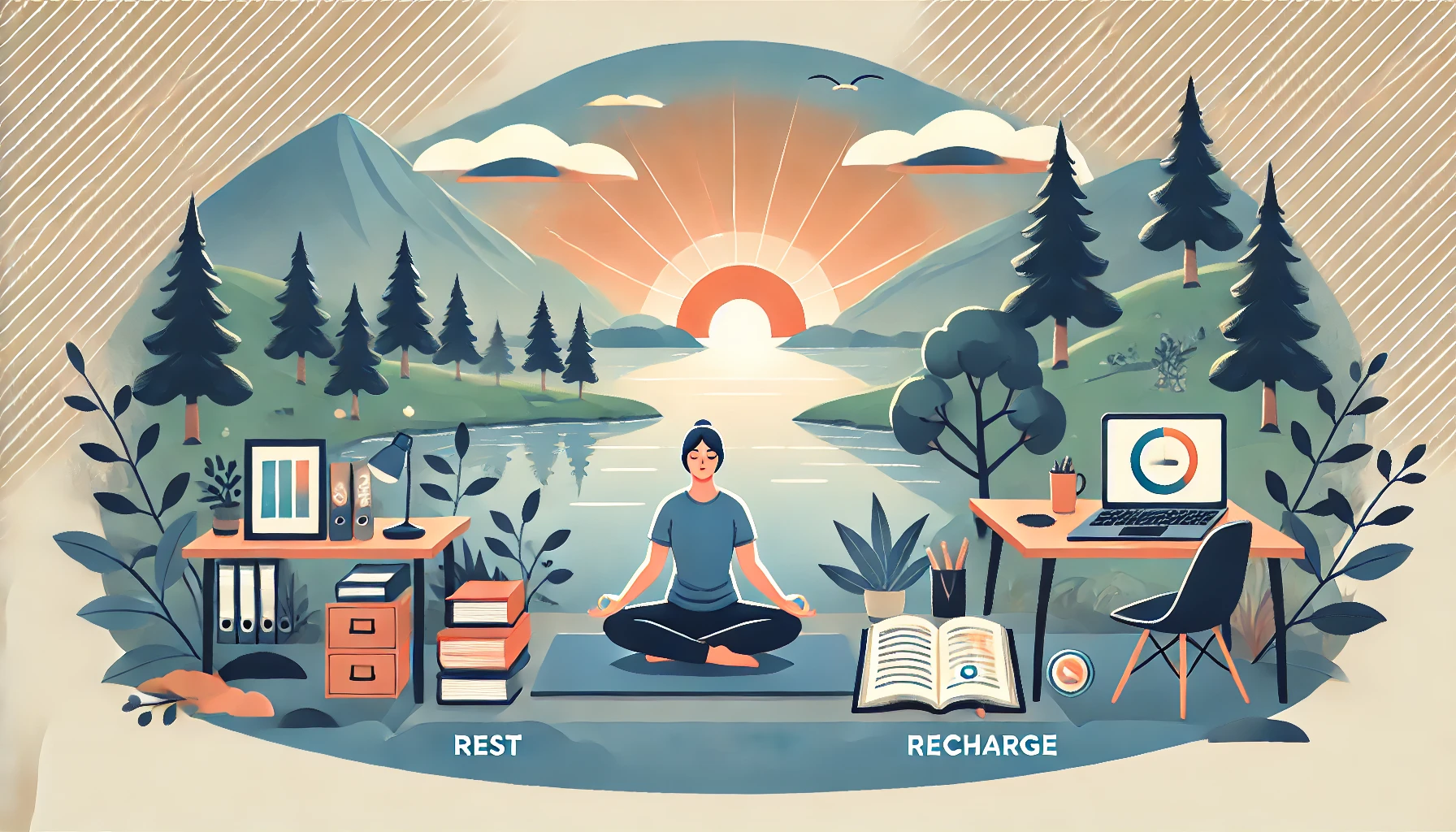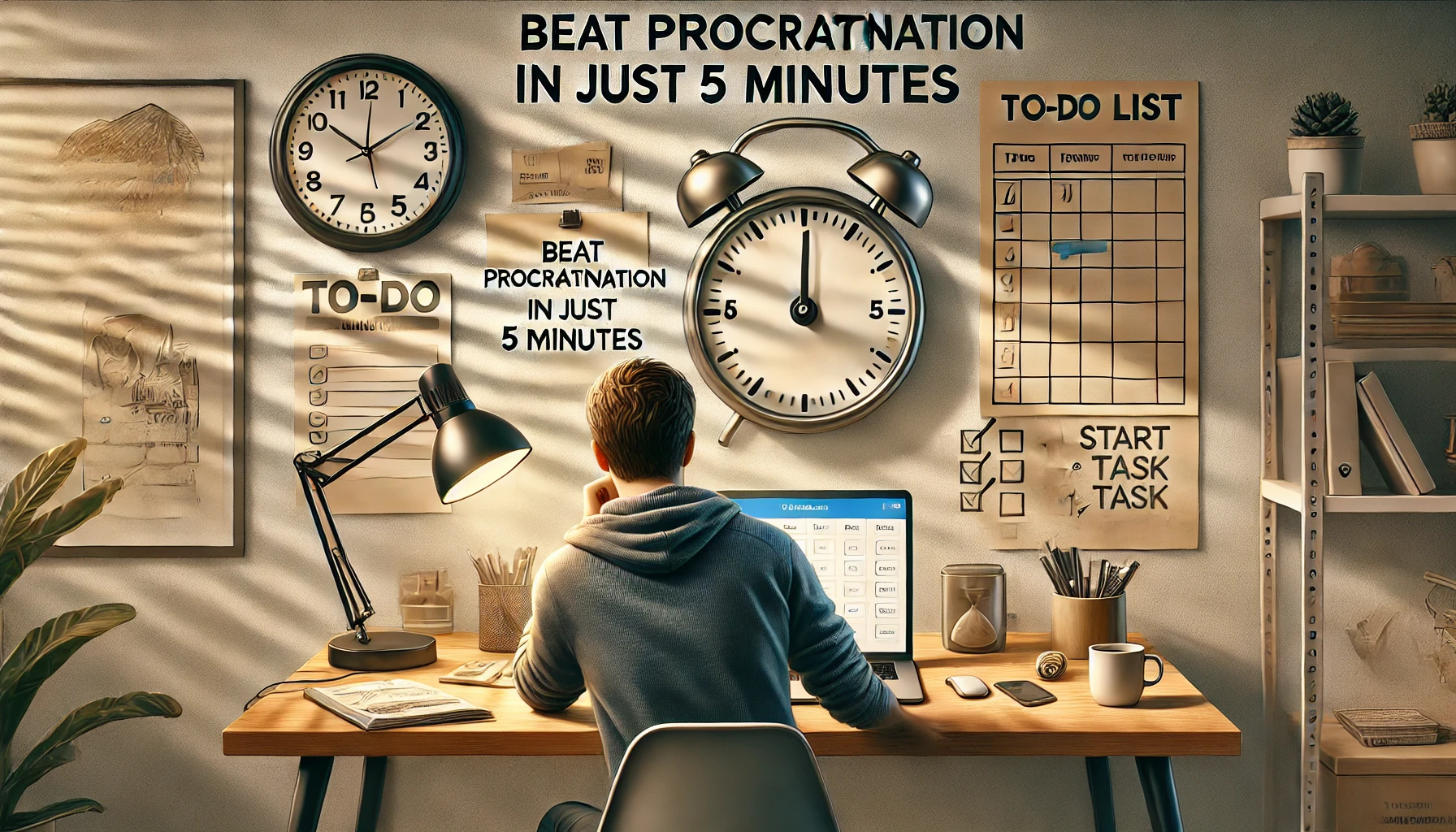You had an important task to complete, but instead, you spent hours scrolling through social media, watching YouTube videos, or cleaning your desk for the third time. Now, the guilt sets in. You feel frustrated with yourself, wondering why you keep repeating this cycle.
Procrastination guilt is one of the biggest obstacles to productivity. Instead of helping you move forward, it can create stress, self-criticism, and even more procrastination. The good news? You can break free from this cycle and turn guilt into a tool for motivation and growth.
This guide will show you why procrastination guilt happens, how it affects you, and practical ways to move past it without self-sabotage.
Why Do We Feel Guilty After Procrastinating?
Procrastination guilt happens when we know we should be doing something productive, but we delay it anyway. Instead of feeling relief, we feel regret and frustration.
| Reason for Guilt | How It Affects You |
|---|---|
| Feeling like you wasted time | Lowers confidence and motivation |
| Knowing you missed an opportunity | Increases regret and stress |
| Comparing yourself to others | Creates self-doubt and frustration |
| Worrying about unfinished work | Leads to more procrastination |
Instead of learning from mistakes and moving forward, many people stay stuck in self-blame and avoidance, which only makes things worse.
The Procrastination-Guilt Cycle: Why It Keeps Happening
- You delay a task → You convince yourself you’ll do it later.
- You feel guilty → You regret not starting sooner.
- Self-criticism kicks in → You call yourself lazy or unproductive.
- More avoidance → You distract yourself to escape guilt.
- The task remains undone → The cycle repeats.
✅ Solution: Instead of punishing yourself for procrastinating, use guilt as a signal to make positive changes.
How to Overcome Procrastination Guilt in 5 Steps
1. Shift from Self-Blame to Self-Compassion
Beating yourself up won’t make you more productive. In fact, self-criticism increases stress, making it harder to take action.
✅ How to Apply It:
- Instead of saying, “I’m so lazy,” say, “I had a hard time focusing today, but I can improve tomorrow.”
- Remind yourself that everyone procrastinates sometimes—it’s normal.
- Treat yourself with the same patience you’d offer a friend.
📌 Example: If you missed a deadline, don’t spiral into guilt. Instead, reflect: “What can I do differently next time?”
2. Identify the Root Cause of Your Procrastination
Understanding why you procrastinated helps you fix the problem instead of just feeling guilty about it.
✅ Common Reasons for Procrastination:
- Fear of failure → You avoid starting because you’re afraid of making mistakes.
- Perfectionism → You wait until you feel ready instead of making progress.
- Overwhelm → The task seems too big, so you put it off.
- Lack of motivation → The task feels boring or unimportant.
✅ How to Apply It:
- Ask yourself: “What was I avoiding, and why?”
- Find a small, easy way to start so the task feels less intimidating.
📌 Example: If you avoided writing an essay because it felt overwhelming, break it into smaller steps: “I’ll just write one paragraph.”
3. Take Immediate Action—Even If It’s Small
The best way to break guilt and rebuild confidence is to take action immediately. Even a tiny step can reduce the weight of procrastination.
✅ How to Apply It:
- Commit to 5 minutes of focused work.
- Start with the easiest part of the task to create momentum.
- Use the 5-Second Rule—count 5-4-3-2-1 and begin immediately.
📌 Example: If you feel guilty about not going to the gym, do 5 minutes of stretching to break the cycle.
4. Reframe Procrastination as a Learning Experience
Instead of seeing procrastination as failure, use it as feedback to improve your habits.
✅ How to Apply It:
- Ask yourself: “What caused me to procrastinate? How can I prevent it next time?”
- Use a productivity journal to track patterns and solutions.
- Experiment with different techniques, like time blocking or the Pomodoro Technique.
📌 Example: If checking your phone caused procrastination, set app limits or use a website blocker next time.
5. Forgive Yourself and Move Forward
Holding onto guilt won’t help—it just wastes more time. The most productive people let go of guilt quickly and focus on the next step.
✅ How to Apply It:
- Say: “That was a mistake, but I won’t let it define me.”
- Set a fresh intention for the next task.
- Focus on progress, not perfection.
📌 Example: If you wasted an afternoon procrastinating, instead of feeling guilty, commit to working for just 30 minutes right now.
How to Prevent Procrastination Guilt in the Future
✅ 1. Set Realistic Expectations → Don’t expect yourself to be 100% productive all the time.
✅ 2. Build a “Start Now” Habit → Train yourself to begin tasks immediately, even in small steps.
✅ 3. Track Your Progress → Celebrate small wins to stay motivated.
✅ 4. Use Accountability → Tell a friend or set a deadline to stay committed.
✅ 5. Schedule Breaks Intentionally → Avoid burnout by allowing guilt-free rest.
Final Thought: Guilt Is a Signal, Not a Sentence
Procrastination guilt is not a punishment—it’s a message. Instead of letting it hold you back, use it to:
✅ Identify what’s causing the delay.
✅ Take immediate action to break the cycle.
✅ Forgive yourself and focus on moving forward.
The next time you catch yourself procrastinating, don’t drown in guilt—just take one small step. The sooner you act, the faster you’ll regain control.












Leave a Reply